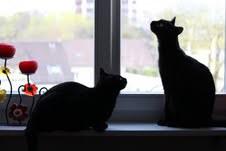
I had a feeling this wasn’t a good reading year, but when I went over my posts I saw that I was wrong. I’ve read some outstanding books some of which will stay with me for a long time.
Best Literary Fiction

Here’s what I wrote about Susan Minot’s Evening
It’s not easy to capture the beauty of Susan Minot’s gorgeous and ambitious novel Evening. If Virginia Woolf or Proust had written page-turners, that’s what it could look like.
In beautiful prose which explores how memory and consciousness work Evening captures the story of Ann Grant’s life. It is 1994 and Ann is terminally ill; she’s lying in her bed, drifting in and out of consciousness. Scent transports her back in time. The morphine induces hallucinations, which are rendered in brilliant stream of consciousness paragraphs. These chapters and paragraphs, are very short, fragments only; the main story however simply moves back and forth between 1994 and 1954, the summer in which she met Harris Arden.
It’s a beautiful book and strangely uplifting. Possibly because it testifies how intense an interior life can be and that nothing is really lost. Everything we’ve ever experienced, imagined or dreamed is still somewhere. In its best moments Evening reminded me of Virgina Woolf’s The Voyage Out, in which we often see people or houses from outside. They are motionless or sleeping, but we catch a glimpse of their inner lives, which are rich and deep and passionate.

Michael Shaara’s Killer Angels is the only Literature and War Readalong title that made the list.
Here’s what I wrote:
Books are not always the way we expect them to be. Still, I’ve only rarely been this wrong. I was afraid Michael Shaara’s Pulitzer Prize winner would be dry, heavy on tactics and military jargon. It wouldn’t have been too surprising if it had been like that, after all, Shaara tells the story of the three-day battle at Gettysburg. But The Killer Angels is anything but dry or heavy. It’s a beautiful, lyrical novel, which focusses much more on the moods and emotions of the main characters than on tactics.
I don’t know what other books the year will bring, but I have a feeling this one could make it on the Best of List. I love books which are rich in atmosphere, capture quiet, introspective moods and manage to bring the most different characters to life. I certainly didn’t expect to find all that in a war novel. The Killer Angels is a gorgeous book on an awful subject, reading it felt like seeing all the major participants of the battle during their most intimate moments. I’m grateful to Kevin who said I would be missing out, if I didn’t read it. He was right.

Edith Wharton’s The House of Mirth
Here’s what I wrote:
It took me far over two months to decide whether I wanted to review The House of Mirth or not. For some reasons, I found this book profoundly disturbing.
While reading The House of Mirth I felt like I was watching a fly getting trapped in a spider’s web. At first, when they notice that they are trapped, they wiggle frantically, hoping to be able to free themselves but, in doing so, entangle themselves even more. Comparing the stunningly beautiful Lily Bart to a fly isn’t doing her any justice, but the way she’s trapped by the society she lives in, and the way in which she tries to free herself, is not much different from the poor fly. I’m still a bit shocked. I knew nothing about The House of Mirth and to find that Lili Bart is just as tragic – maybe even more so – as Effi Briest or Mme Bovary (only without the adultery), came as a huge surprise.

Ellen Gilchrist’s In the Land of Dreamy Dreams is the best short story collection I’ve read this year and one I want to read again some day.
Here’s what I wrote:
I came across Ellen Gilchrist by chance. I was looking for books set in New Orleans and saw one of her short stories Rich in an anthology. I wasn’t familiar with her and looked her up and finally ordered a used copy of her first collection In the Land of Dreamy Dreams. It’s very rare that I read a whole short story collection in a few days, but I did in this case. There was a unity of setting, mood and atmosphere, and even one returning character that it read almost like a novel in stories.
I haven’t read anyone quite like Ellen Gilchrist but she still reminded me of a few authors. Tennesse Williams came to mind – A Streetcar Named Desire as much as The Roman Spring of Mrs. Stone – because of the setting and some of the older characters. But she also reminded me of Julie Orringer whose intricately woven sentences and lush descriptions are similar and there’s some of Yoko Ogawa’s cruelty in this collection as well. Funny enough Ogawa’s last short story collection has the English title Revenge. One of Gilchrist’s best stories is called Revenge as well. Coincidence? Who knows.
If you like rish, complex short stories, full of allusions and sensual descriptions, sometimes mean, sometimes dreamy – then do yourself a favour and get a copy of this wonderful book.

Deirdre Madden was another great discovery this year. I absolutely loved. Molly Fox’s Birthday
Here’s what I wrote:
It’s been a while since I’ve read a book by a new-to-me author and felt like reading everything she’s ever written.
Molly Fox’s Birthday is a wonderful celebration of the interior life, art, theatre, friendship and it’s an exploration of how daily life, despite the struggles, doesn’t have to turn into something dull and devoid of authenticity. There’s always meaning, you just have to look for it.

I hadn’t heard of Mary Hocking before and have to thank heavenali who hosted a Mary Hocking Week for the discovery.
Here’s what I wrote:
I really liked The Very Dead of Winter are great deal. Not only for its wry humor and psychological insight, but also for some lovely descriptions. It’s not a flawless novel, there are a few instances of shifty point of view, but that didn’t diminish the experience one bit. I’ll certainly read more of Mary Hocking, might even re-read The Very Dead of Winter.
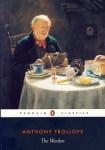
After reading Trollope’s The Warden I wasn’t sure whether it would make it on the list but I must admit- it’s a memorable book.
Here’s what I wrote:
Memory is a funny thing. For years I have been haunted by a sensual impression of a place. I remember being in England and walking along a row of houses. It’s a very peaceful, mild, warm autumn afternoon. The houses are part of a larger compound, overshadowed by a huge cathedral. I remember walking away from the cathedral close and coming to a small river that was flowing through the grassy meadow, on the same level as the soil. There were weeping willows and sheep. Walking around that place was like visiting a time long gone. These haunting images returned periodically. The light outside of my windows sometimes triggered the memory. It was always nice to go back in my mind, the only trouble was – I couldn’t remember where this had been. I’ve been in England many times, stayed there for a couple of months or weeks. I’ve visited many places and many cathedrals, but as much as I thought about it – I had no clue where I’d been on that warm autumn afternoon. Not until reading The Warden. The moment I opened the book and read the description of Barchester I knew – this is where I had been. But how could that be? Barchester doesn’t exist. Although I like to keep the introduction of a book until I’ve finished it, I had to read it to find out more. In the introduction I learned that Trollope based Barchester on Salisbury and Winchester. I immediately went online and looked up photos of Salisbury cathedral, the cathedral close and the meadows around and, yes, indeed, that’s where I’ve been some years ago. I found it pretty uncanny that Trollope was so capable at describing a place. I still don’t know why I forgot that the images were images of Salisbury. I’ve never forgotten a place like that. Maybe because it was so dreamlike?
I’m glad I read The Warden. It made me remember my stay at Salisbury and I loved the descriptions. I liked his choice of themes and think they are just as important today as they were then. I also think he’s a wonderful satirist.
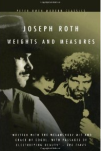
This too will stay with me. Joseph Roth’s Weights and Measures – Das falsche Gewicht is such a powerful short novel.
Here’s what I wrote:
How does an upright, steadfast man survive among corruption, hypocrisy, and crime? Roth’s answer to this question, which lies at the heart of Weights and Measures – Das falsche Gewicht, is pretty simple: he doesn’t. Either he is tainted or he will go down.
What I liked most is how Roth used the descriptions of the place and the weather to show Eibenschütz’s emotions and to underline the wild remoteness of this region. There were many beautiful small scenes and episodes. Eibenschütz is upright and stiff, but he’s also very emotional and feels deeply. His life as a soldier sheltered him emotionally; experiencing heartache and passion, unhinges him. When he falls in love he discovers nature. Before his “awakening” nature is just a phenomenon he sees but barely notices. The changing seasons bring rain or snow, breaking ice or sunshine, but that doesn’t affect him. Once he’s “awake” he feels the seasons, feels he’s part of it.

Elizabeth Taylor’s A Game of Hide and Seek was another winner.
I often read the best books of the year in December. Sometimes they don’t make it on the Top 10 list because I read them so late in the year. Luckily I’ve read Elizabeth Taylor’s fifth novel A Game of Hide and Seek just in time. This is my third Elizabeth Taylor novel and every time I read her I’m amazed to find out again how good she is. As much as I liked Blaming and Mrs Palfrey at the Claremont, A Game of Hide and Seek is even better. It’s larger in scope, richer in themes, with many more protagonists, and stretches over decades. The mood and atmosphere reminded me a lot of Rosamond Lehmann’s Dusty Answer and David Lean’s movie Brief Encounter, both of which are favourites of mine.
I’m aware I wasn’t able to capture this book because it contains so many themes (childhood, first love, passion, married life, women’s rights, work, education, memory, growing older . . .) and is so rich— there’s a wonderful, bitter-sweet love story, accurate descriptions of a period, lifelike, flawed characters, and humourous observations. It’s one of the best books I’ve read this year. I even added it to my list of all-time favorite books.
Best Mainstream Fiction
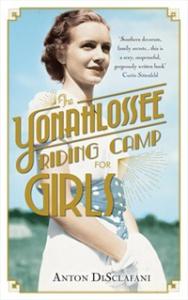
I read Anton DiSclafani’s The Yonahlossee Riding Camp for Girls in January but it’s still present as if I’d read it a couple of weeks ago. It’s such a lovely book.
This is what I wrote then
I’m not sure what exactly made me love this book so much. Was it the elegant writing, the dreamy mood, the sense of seeing a long-gone world, the tragedy of the story or the characters?
I loved the way DiScalafani captured the setting and the period. I liked how she showed the end of an era without turning this into a mournful book, but into one that shows that people can free themselves from their stifling upbringing if they are true to themselves. Thea is a character who is true to herself at all times. This comes at a cost but one she’s aware of and willing to pay.
If you like a rich, beautifully told story, with mystery and a lush setting, if you are fascinated by the Great Depression and big Southern Families and enjoy a coming-of-age story, which is at times quite steamy, then I’m pretty sure you’ll love The Yonahlossee Riding Camp For Girls.
Best Crime
It was a great crime reading year. I can’t say I’ve read anything that I didn’t like to some extent, so the choice wasn’t easy but my two favorite books this year were
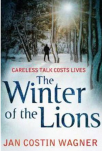
Jan Costin Wagner was a real discovery this year. I’ve read his first three. They are all good but I only reviewed this one.
Here’s what I wrote:
What made me love Wagner’s books even more was his writing style. This is crime at the literary end of the spectrum. The sentences are short, spare, and very precise.
As if all of this wasn’t enough there’s a haunting atmosphere in every book and the Finnish setting is another bonus, especially since each book takes place during another season. I loved to read about the long nights in winter and the endless days in summer.
Should you wonder why a German author chose to set his books in Finland —Wagner is married to a Finnish woman and spends half of the year in Finland.
This is one of the best crime series I know. Haunting, atmospherical, with philosophical depth and impeccable writing.

S.J.Bolton is certainly one of my favorite crime writers and I’ll read all of her books eventually. Still, this was the best so far. I loved it.
Here’s what I wrote
Dead Scared was my third novel by S.J. Bolton. It’s the second novel featuring Lacey Flint and DI Mark Joesbury. I liked Sacrifice and Now You See Me a lot, but I really loved Dead Scared. I think it’s one of my all-time favorite crime novels. It’s got everything I like in a plot-driven crime novel. Great setting, evocative atmosphere, appealing characters, a well-paced plot and a really great story. For once she didn’t even stretch believability all that much.
Best Sci-Fi
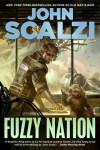
I loved John Scalzi’s Fuzzy Nation. Funny, entertaining and thought-provoking with one of the bets beginnings ever. My review
Here’s what I wrote:
Fuzzy Nation isn’t only an adventure story, in which cute little animal-people are suddenly in great danger and other people have to make some tough decisions, it’s also an exploration of what makes a human. Is it understanding, intelligence, dexterity, the aptitude to use machines or language? In any case, once you’re declared a sentient being, you have the right to possess things. Before that, everything you own can be taken and destroyed.
Best Children’s Book

I’ve read so many children’s books this year that I didn’t even get the time to review them. Two stood out Diana Wynne Jones’s Fire and Hemlock and David Almond’s Skellig.
Here’s what I wrote about Skellig:
I often think that the best books for children are not just books for a particular age group but timeless tales for any age. Just think of Antoine de St Exupéry’s The Little Prince. It’s a children’s book but it is so much more. And so is Skellig, David Almond’s wondrous, lyrical novel of love and healing.
Skellig is such a magical book. Lyrical, spiritual and philosophical, but very realistic too. It’s an elusive book, that is hard to describe without breaking its spell. It’s a story of love and loss, grief and joy, inspired by tales of angels, the evolution of birds and William Blake. Every reader interprets Skellig in another way. After I finished it I’m still not sure what Skellig is but it doesn’t matter. It’s enough to feel how inspired David Almond was when he wrote this novel. Skellig is pure magic; an image, a deeply haunting feeling, that carries a truth that predates words. I think it took courage to write a book like this and to leave so many questions unanswered. David Almond seems to have been sure that even if we didn’t “get it” intellectually, we would still be able to understand it on an emotional level. I really love that.
Best Non-Fiction
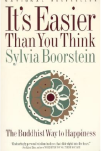
It’s Easier Than You Think by Sylvia Boorstein.
I didn’t review it but it made a huge impression on me. Especially the parts about impermanence. I told all of my friends about it, urging them to read it.
